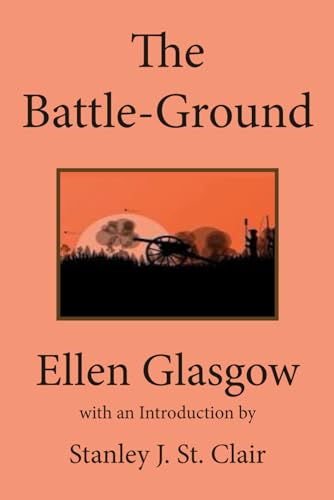
Part of Series
The Battle-Ground, Ellen Glasgow's fourth novel, was her first bestseller, with more than 21,000 copies sold in just two weeks. The novel committed her to a project almost unparalleled in American literary history: a novelistic meditation on the South from the decade before the Confederacy to the middle of the 20th century. The Battle-Ground speaks of a South before and during the Civil War in its struggles to become part of a nation still in the making. The overthrow of the aristocratic tradition, the transfer of hereditary power to a rural underclass, the continued disenfranchisement of African Americans, and the evolving status of women—these topics, which came to bind the more than a dozen volumes of Glasgow's self-styled "social history," initially coalesced in The Battle-Ground. The Battle-Ground conspicuously departs from the tradition of Southern romances popularized by Thomas Nelson Page, and contemporary reviewers praised the book for its historical accuracy. Glasgow, an ardent Anglophile, bragged that military officers in Great Britain studied its descriptions of battle. With her, realism had not only crossed the Atlantic, it had "crossed the Potomac." But Glasgow never sensationalizes the Civil War, whose bloodiest scenes she flanks with domestic officers, the sharing of rations, the warmth of camp, and reminders of home. Her vision of the war centers less on its corruption or barbarity than on its occasions for small decencies and their power of humanization. Glasgow cannot separate the war from its greater social implications—it is a place, as her title suggests, that tests the soul of a nation as well as individual men and women. The importance of The Battle-Ground in Southern literary history cannot be overemphasized, for Glasgow's reimagining of the Civil War had a profound impact on the next generation of Southern writers, including Allen Tate, Stark Young, and Margaret Mitchell.
Author

aka Ellen Anderson Gholson Glasgow American writer Ellen Anderson Gholson Glasgow won a Pulitzer Prize for In This Our Life (1941), her realistic historical novel of Virginia. Born into an upper-class Virginian family, Glasgow at an early age rebelled against traditional expectations of women and authored 20 bestselling novels. Southern settings of the majority of her novels reflect her awareness of the enormous social and economic changes, occurring in the South in the decades before her birth and throughout her own life. Beginning in 1897, she wrote her novels and many short stories, mainly about life in Virginia. Glasgow read widely to compensate for her own rudimentary education. She maintained a close lifelong friendship with James Branch Cabell, another notable writer of Richmond. She spent many summers at the historic Jerdone Castle plantation estate of her family in Bumpass, Virginia; this venue reappears in her writings. Her works include: The Descendant (1897), Phases of an Inferior Planet (1898), The Voice of the People (1900), The Battle- Ground (1902), The Deliverance; A Romance of the Virginia Tobacco Fields (1904), The Romance of a Plain Man (1909), Virginia (1913), The Builders (1919), The Past (1920), Barren Ground (1925), The Romantic Comedians (1926), They Stooped to Folly (1929), The Sheltered Life (1932), Vein of Iron (1935), In This Our Life (1941).